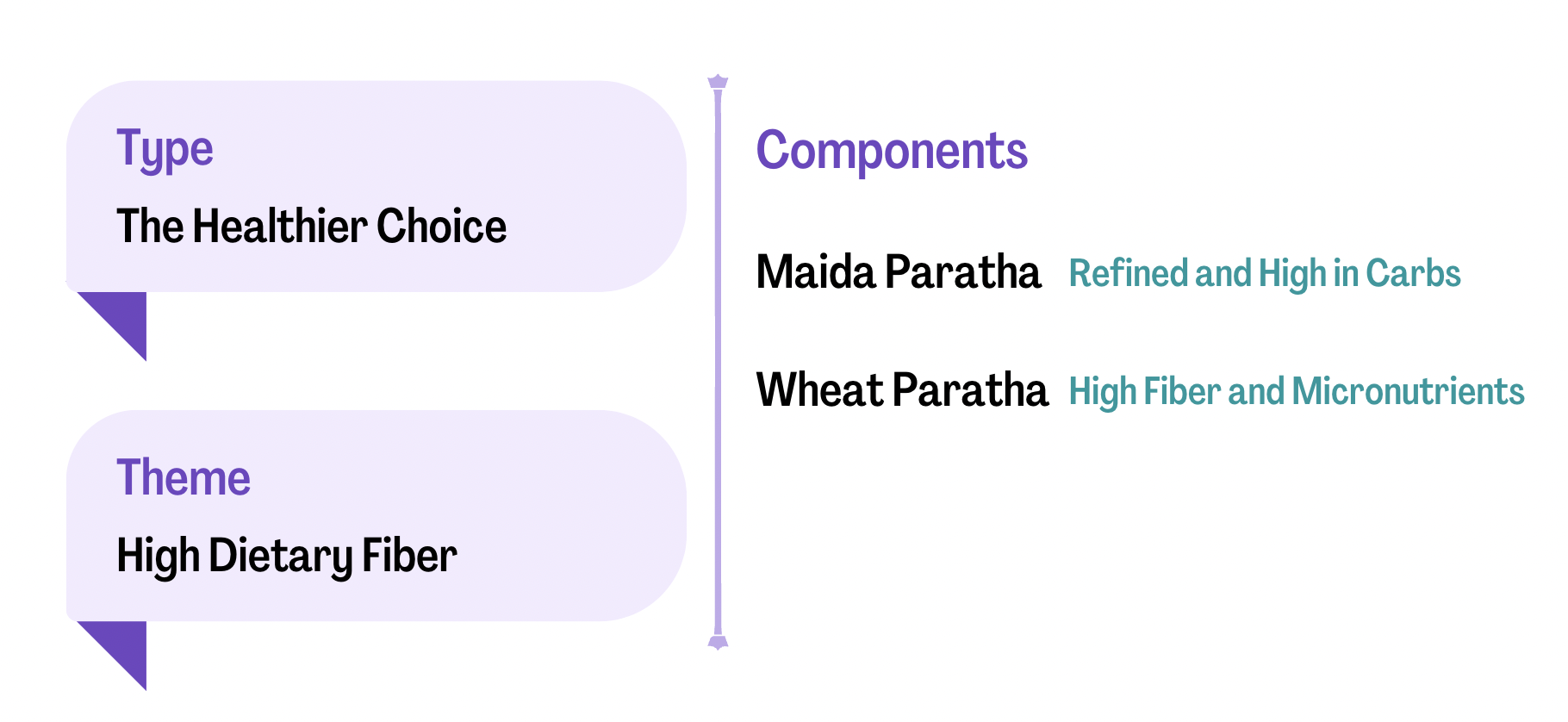

Our Review Process
Our articles undergo extensive medical review by board-certified practitioners to confirm that all factual inferences with respect to medical conditions, symptoms, treatments, and protocols are legitimate, canonical, and adhere to current guidelines and the latest discoveries. Read more.
Our Editorial Team
Shifa Fatima, MSc.
Author
Dr. Apoorva T, MHM.
MEDICAL ADVISOR

Table of Contents
Experiment Question
Which of these Foods is the Better Choice? Maida Paratha v/s Wheat Paratha?
Experiment Answer
Whole Wheat Paratha!
Whole wheat has fibre, and therefore it stabilizes sugar levels along with providing a lot of micronutrients that might be present in the husk and bran. In case of maida which is refined and void of any fiber, it leads to quicker absorption of carbohydrates resulting in a glucose spike.
Scientific Rationale
Wheat Parotta has been a region of the human diet for tens of thousands of years. However, proponents of the many fashionable diets like the paleo diet, claim that consuming grains is bad for your health. Whereas a high intake of refined grains is connected to health issues like obesity and inflammation, wheat may be a completely different story. Consuming wheat is associated with numerous benefits, including a lower risk of polygenic disorder, cardiovascular disease, and high blood pressure levels. Here are the top health benefits of eating wheat parotta.
Whole wheat parotta delivers many important nutrients like fiber, minerals, protein, and antioxidants. When you consume wheat parotta you are also adding good nutrients to your diet.
Fiber: In wheat, bran produces most of the fiber. Almost 3 grams of fiber per serve.
Vitamins: Wheat is significantly high in B vitamins, as well as niacin, thiamine, and folate
Minerals: They additionally contain a solid amount of minerals, zinc, iron, magnesium, and manganese.
Protein: In wheat parotta, whole grains boast 15.73 grams of protein per serving.
Antioxidants: Several compounds in wheat grains act as antioxidants. These embody phytic acid, lignans, ferulic acid, and sulfur compounds.
Lower your risk of heart disease
One of the biggest health benefits of wheat grains is that they lower your risk of heart disease, which is the leading cause of death worldwide. A review found that 28-gram servings of whole grains daily may lower your risk of heart disease by 22%. Similarly, a study observed that those who ate the highest proportion of whole grains concerning their total carb intake had a 47% lower risk of heart disease. They concluded that heart-healthy diets should include more whole grains and fewer refined grains.

Disclaimer
This website's content is provided only for educational reasons and is not meant to be a replacement for professional medical advice. Due to individual differences, the reader should contact their physician to decide whether the material is applicable to their case.






_1lAR9W.png)
_Z12iaBn.png)
